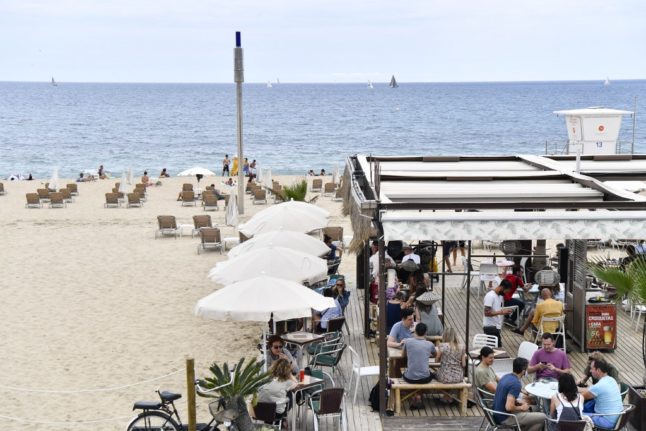El Día del Trabajador or Labour Day in Spain is a public holiday in Spain’s 17 autonomous communities and is held on May 1st.
In 2023, May 1st will fall on a Monday, meaning that you can take the opportunity to get away for a long weekend before summer.
It will be a holiday in all regions across Spain, so no matter where you live you will most likely have this day off. Schools, most businesses and shops will also be closed on this day.
Those in Madrid will also have another holiday on May 2nd, which commemorates the day in 1808 when the population rose up against Napoleon’s troops in the Peninsula War.
READ MORE: What is ‘Dos de Mayo’ and why does Madrid celebrate it?
Each region in Spain has 12 public holidays to which each municipality must add two more non-working days for local celebrations. This means that in total, there are 14 public holidays a year in Spain that employees can benefit from.
READ ALSO: How to make the most of Spain’s public and regional holidays in 2023?
Why is May 1st a public holiday?
May 1st is a bank holiday in over 80 countries around the world and is also known as International Workers’ Day.
It’s an iconic date in the United States, called Labour Day and commemorates a general strike for workers’ rights, known as the Haymarket Riot on May 1st 1889. It ended with the death of those who later became known as the ‘Chicago martyrs’.
READ ALSO – Spain’s public and regional holidays in 2023: How to make the most of them
At the time, workers were expected to work long hours for low salaries, which in many cases did not cover basic needs. Children worked from the age of six, and the women worked at night to make ends meet.
In Europe, May 1st was traditionally associated with rural pagan festivals celebrating the arrival of spring, but over the years it has become more about workers and is now recognised for its association with the labour movement.
El Día del Trabajador began to be celebrated in Spain in 1889, but it only became a public holiday in 1931.
In 1938, Spanish dictator Francisco Franco replaced it with the Fiesta de la Exaltación del Trabajo (The Day of Elation for Work or Praise for Work), considering that the former was too closely linked to his communist enemies. That meant that for almost two decades, Spanish workers didn’t have a day off on May 1st but rather on July 18th.
It wasn’t until 1955 that the original Labour Day date returned to Spain as Pope Pío XII added it to the Catholic calendar to commemorate St. Joseph the Worker.
However, only in 1978 with the advent of democracy in Spain were work demonstrations allowed to take place on Labour Day.



 Please whitelist us to continue reading.
Please whitelist us to continue reading.
Member comments